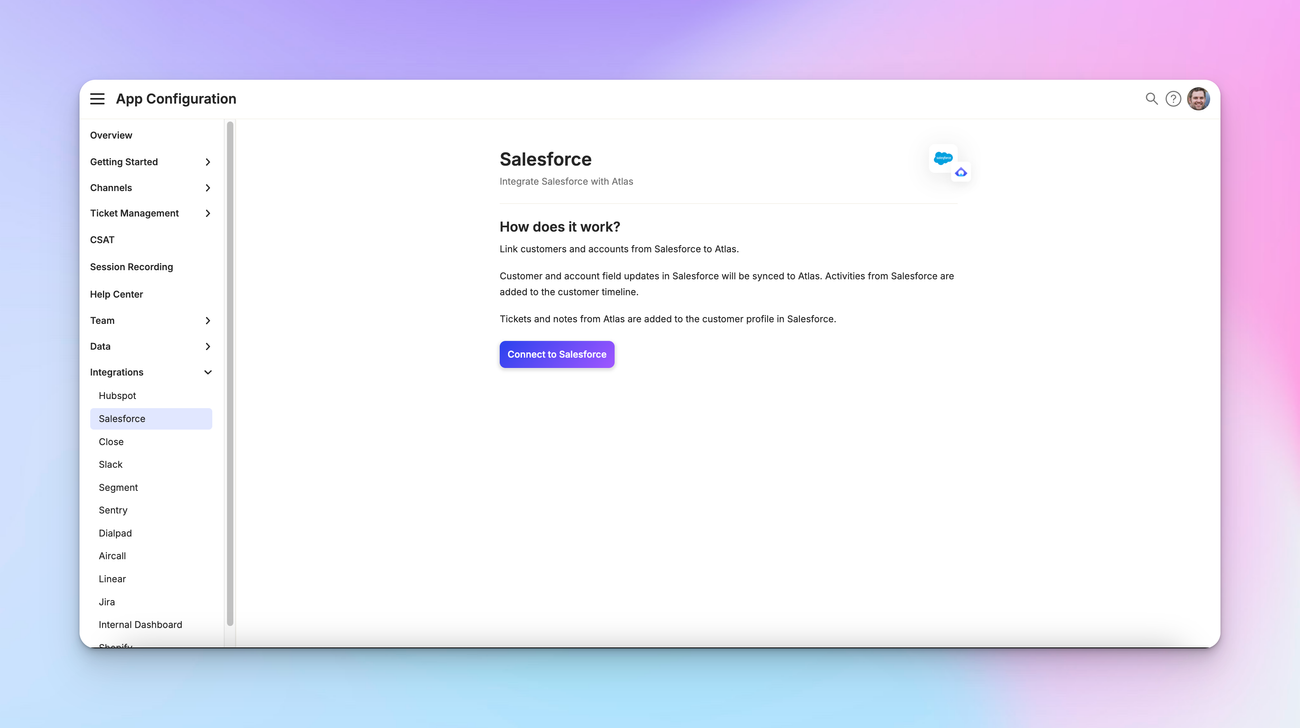Salesforce integration
Last updated March 6, 2025
Bring your sales and support data together for better customer service.

Overview
Atlas works smoothly with Salesforce, letting you sync customer info between your CRM and support tool. This helps you see a full picture of your customers and provide better, faster support.
Setting up Salesforce integration
To start, go to App Configuration > Integrations > Salesforce .

Click "Connect to Salesforce" and log in to your account. Follow the steps to allow the connection.
Remember, you can only use one CRM with Atlas at a time. Make sure Salesforce is the one you want.
Configuring the integration
After connecting, you'll set up how data moves between Salesforce and Atlas.
Mapping core fields
Link up basic info like names, emails, and phone numbers. This helps avoid duplicate records and keeps info consistent.
Custom field mapping
You can also link custom fields from Salesforce to Atlas. This lets you sync the specific data that matters to your business.
Object mapping
Link Salesforce objects (like Accounts or Opportunities) to similar items in Atlas.
Activity sync
Set up two-way sharing of activities:
- Things logged in Salesforce (like calls or tasks) can show up in Atlas.
- Conversations or notes in Atlas can appear in Salesforce.
This keeps your support and sales teams up to date.
Benefits of Salesforce integration
Connecting Salesforce and Atlas has many perks:
- See the whole picture: Support agents get helpful Salesforce data right in Atlas.
- Solve issues faster: More info means quicker solutions.
- Sales and support work better together: Sales can see support interactions, and vice versa.
- Spot VIP customers: Easily see high-value customers for better service.
- Keep everything current: Both systems stay up to date automatically.
- Better reporting: Combine support and sales data for smarter insights.

